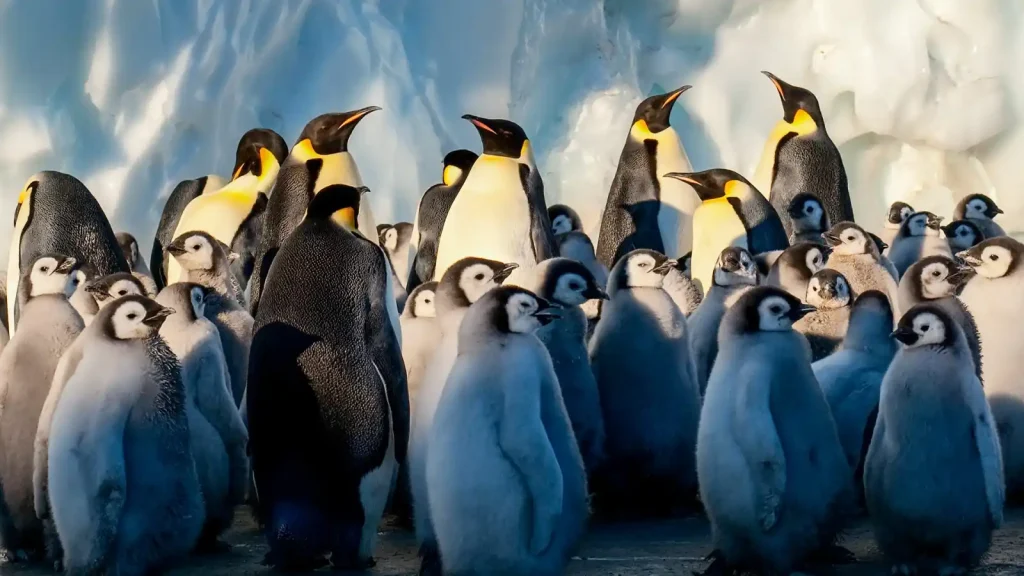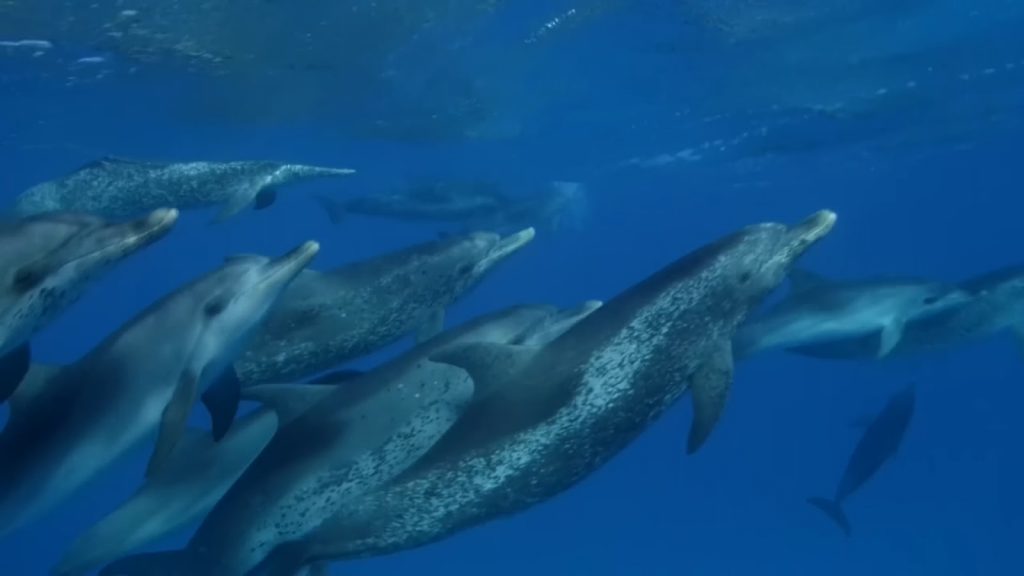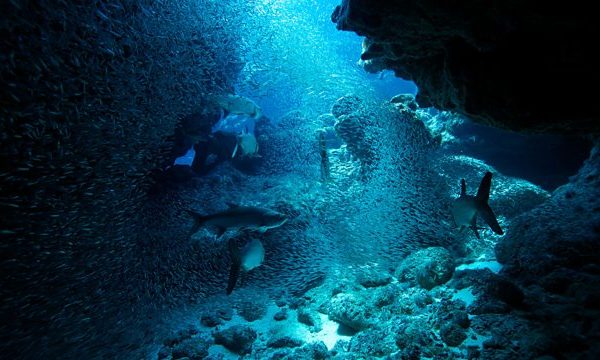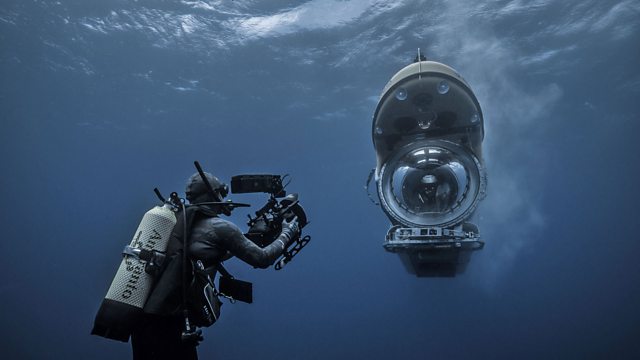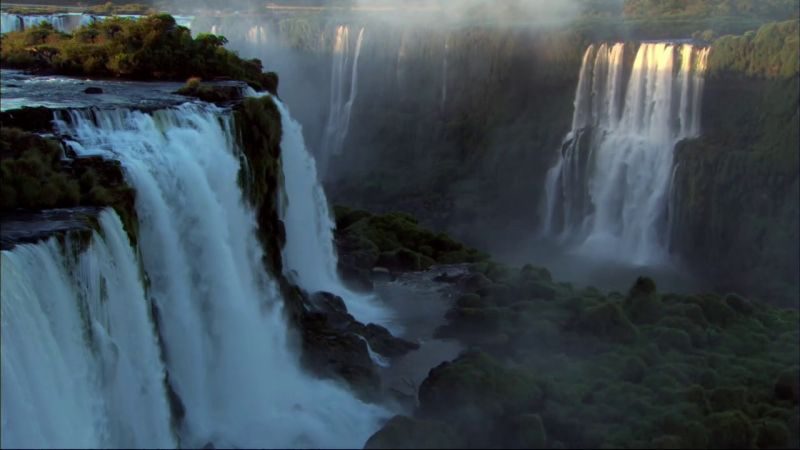Frozen Planet episode 5: Winter—nature’s ultimate test of endurance. As temperatures plunge to 70 degrees below zero and icy winds howl at 200 kilometers per hour, survival seems almost impossible. Across the polar realms, darkness stretches its long shadow, and thick ice blankets everything in sight. Here, only a few remarkable creatures dare to endure, staking their chances on resilience and adaptation.
Take a journey alongside a female polar bear, bravely trekking across the Arctic mountains just as the first blizzards roll in. She’s on a quest, one filled with hope and risk, to find a safe place to give birth to her cubs. Her path is daunting, but it’s instinct that drives her forward—a need to carve a future in a land so hostile it could easily swallow them whole.
Meanwhile, the frozen ocean hosts a sight few will ever witness—the entire global population of spectacled eider ducks gathered in a single ice hole. This hole, kept open against all odds by relentless underwater currents, serves as their refuge. Together, these ducks form a resilient community, each bird braving the cold and the unknown to secure their survival. They cling to the space as though it’s a miracle—and, in many ways, it is.
Elsewhere, Arctic forests become a spectacle straight out of a fairytale. As the snow falls and frost takes over, the landscape transforms into a glittering wonderland, beautiful but unforgiving. It’s here, amid the frost-covered pines, that an age-old battle unfolds. Wolves and bison engage in a fierce fight—a raw and primal dance between predator and prey. The air is filled with tension, each movement a testament to the hunger and the need to endure. And not far from this clash, something extraordinary takes place—a cunning partnership between a raven and a wolverine. It’s as though survival itself has woven an alliance of necessity between two unlikely allies.
But the magic of winter is often hidden below the surface. Beneath the snow, an enchanting, secret world exists—a labyrinth of tunnels and tiny hideouts. Here, life flourishes against the odds. Voles scurry beneath the icy crust, avoiding predators from above and below. Their greatest challenge? The least weasel, a predator small yet swift, whose presence beneath the snow turns the once peaceful world of the voles into a hazardous maze. They move quietly, darting from shadow to shadow, always aware that danger could emerge from any corner.
As midwinter sets in, the Arctic turns into a place of profound solitude. On the vast, empty icescape, a lone male polar bear wanders, a solitary figure against an endless sea of white. Underneath the snowdrifts, in an icy den, polar bear cubs are born. Their arrival is marked by a moment of warmth and hope, even as the cruel winds howl above. Far above, the night skies are painted with ethereal shades of green and purple—auroras that dance like spirits across the horizon, their beauty an almost surreal contrast to the harshness below.
Across the world in Antarctica, male emperor penguins face their darkest days—a relentless fight to protect their eggs. The storms are merciless, the cold cutting through even the thickest of feathers. Yet these fathers stand steadfast, balancing their precious cargo on their feet, enduring each icy gust with determination and love for the lives they guard. For them, there is no other option. It is their duty, their purpose.
Frozen Planet episode 5
The Weddell seals, however, find a different kind of escape. They dive below the surface, slipping into a world of unexpected color and wonder. There, beneath the frozen ceiling, exists a realm of vivid coral and strange, alien-like creatures. It’s a world of startling beauty, but also a fragile one. Danger looms in the form of sinister ice stalactites—or “brinicles”—slowly descending to the ocean floor, encasing everything in their icy grip. It’s a frozen apocalypse, one that unfolds with chilling precision.
Then, finally, a new beginning. The sun returns, its light breaking the grip of endless night. And with its return comes new hope. Female emperor penguins, plump and sleek from feeding, march back across the ice. They bring life with them—the very first meal for their hungry chicks, waiting patiently after weeks of darkness and hardship. It’s a reunion of resilience, a testament to nature’s capacity for renewal. These are not just survivors; they are families forged in one of the harshest environments on Earth.
As the light spreads, the Antarctic becomes alive once more. Adelie penguins return en masse, a rush of activity that fills the ice edge with noise and movement. The male emperor penguins, having fulfilled their vital role, can now return to the sea. Each dive is an embrace of the ocean—a long-awaited reward for their tireless watch on the ice.
Winter in these frozen worlds is not just a season—it’s a crucible. Every moment is a test, every day a challenge. But for those who survive, it’s a season that forges bonds, creates life, and reveals the beauty that only the most resilient can witness. In the face of such extremes, the creatures of the poles remind us of the incredible power of persistence, the importance of community, and the miracles that lie hidden in the coldest corners of our planet.
Conclusion Frozen Planet episode 5
The frozen world, with its harsh winters and boundless ice, is a testament to the extraordinary will to survive. As we reflect on these powerful stories from Frozen Planet, it becomes clear that winter is more than just a season of cold—it is nature’s crucible, testing every living thing to its limits. Here, in these unforgiving landscapes, life does not simply persist; it triumphs, defying odds that would seem insurmountable.
From the lone polar bear trekking across a vast white wilderness to give her cubs a chance at life, to the emperor penguins standing together through the darkest days to guard the next generation, we see the profound determination that guides each action. Each creature, no matter how small, plays its part in this interconnected story of survival. Voles, spectacled eider ducks, Weddell seals, and even the smallest predator—the least weasel—have proven that survival in these extreme conditions is not only possible but filled with moments of beauty and unexpected alliances.
And yet, it is not merely survival we witness—it is the spirit of renewal. The return of the sun, with its warmth and light, is more than a change in weather; it is a beacon of hope, a signal for new life to begin again. The frozen grip of winter loosens, and with it, we see bursts of life and activity, the culmination of long months of endurance. The sun rises, and suddenly the white silence fills with movement—the adelie penguins crowd the edges of the ice, the emperor penguins are reunited with their chicks, and the frozen sea becomes a place of thriving color and motion once more.
In these final moments of winter, the creatures of the poles offer us a lesson: that resilience, courage, and community can overcome even the most formidable challenges. In the face of darkness, they find light; amidst the cold, they create warmth. Winter tests them, but it also defines them, forging unbreakable bonds and moments of breathtaking beauty that can only exist because of the extremes they endure. This is the essence of life in the frozen world—an enduring cycle of struggle, strength, and, ultimately, hope.
For every storm weathered, there is a sunrise. And for every frozen night, a promise of spring—a reminder that even in the harshest conditions, life finds a way to flourish.
FAQ Frozen Planet episode 5
Q: What is the central theme of Frozen Planet episode 5?
A: This episode focuses on winter in the polar regions, showcasing the incredible endurance of animals in the face of extreme conditions. Furthermore, it highlights the diverse survival strategies these animals employ. Ultimately, it’s a story of resilience, adaptation, and the interconnectedness of life in these harsh environments.
Q: Can you provide an example of a unique animal partnership featured in the episode?
A: The episode features a fascinating alliance between a raven and a wolverine. While seemingly unlikely, these two creatures cooperate for mutual benefit. In this challenging environment, such partnerships can be crucial for survival.
Q: How do emperor penguins ensure the survival of their offspring during the brutal Antarctic winter?
A: Male emperor penguins endure incredibly harsh conditions to protect their eggs. They huddle together against the freezing winds and blizzards, balancing their eggs on their feet for warmth. Consequently, they go without food for months, demonstrating a remarkable commitment to their paternal duties.
Q: What surprising discovery awaits viewers beneath the Antarctic ice?
A: The episode reveals a hidden world teeming with life beneath the ice. Weddell seals dive down to a vibrant ecosystem of colorful corals and unusual creatures. However, this fragile beauty faces a constant threat from “brinicles,” icy formations that descend from the surface, encasing everything in their path.
Q: What is the significance of the return of the sun in the polar regions?
A: The return of the sun marks a turning point in the episode. Firstly, it symbolizes hope and renewal. Secondly, it triggers a surge of activity, with animals like the Adelie penguins returning to the Antarctic. Finally, it allows the male emperor penguins to reunite with their chicks and return to the sea, signifying the end of their long vigil.
